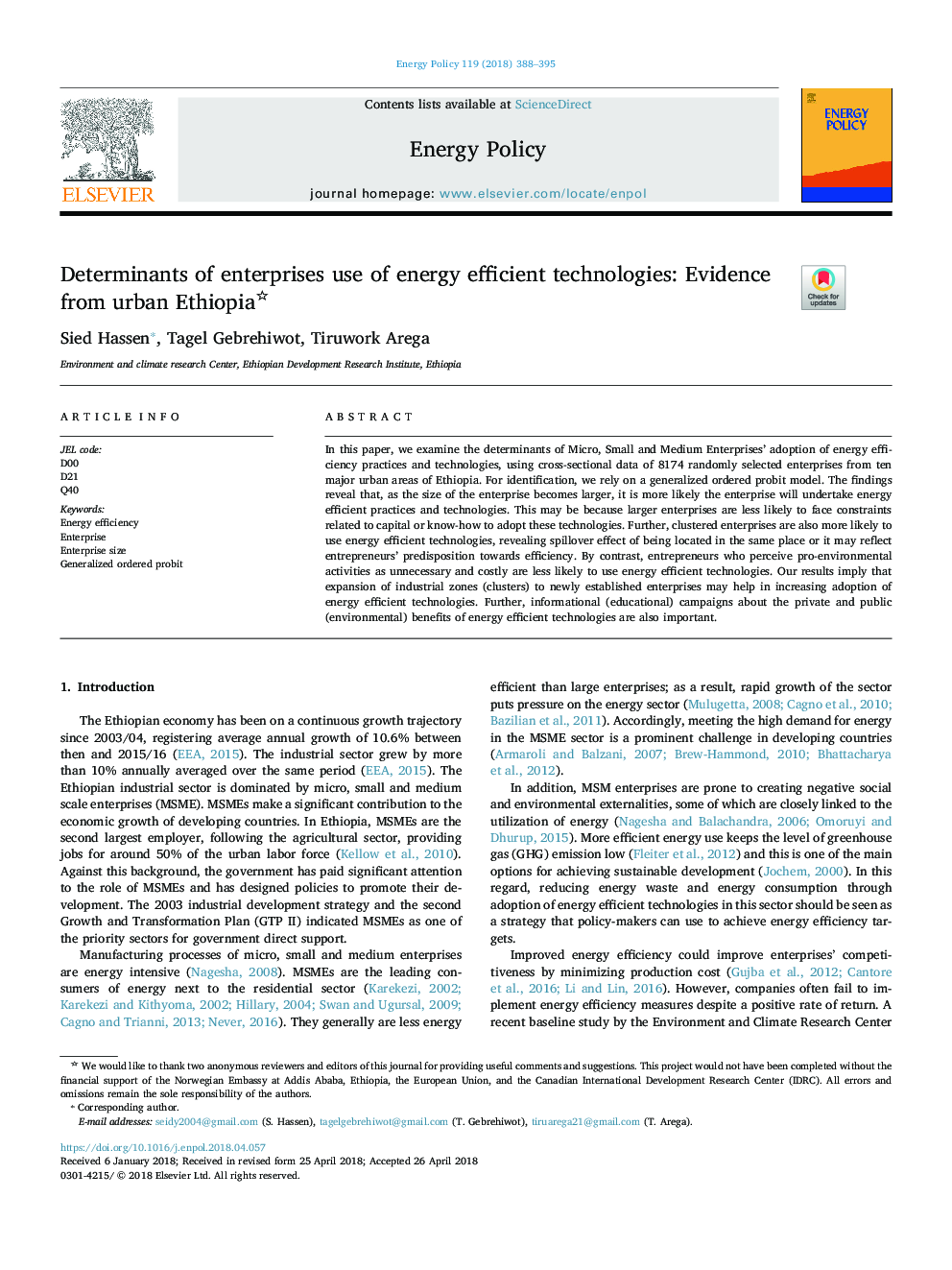| Article ID | Journal | Published Year | Pages | File Type |
|---|---|---|---|---|
| 7396849 | Energy Policy | 2018 | 8 Pages |
Abstract
In this paper, we examine the determinants of Micro, Small and Medium Enterprises' adoption of energy efficiency practices and technologies, using cross-sectional data of 8174 randomly selected enterprises from ten major urban areas of Ethiopia. For identification, we rely on a generalized ordered probit model. The findings reveal that, as the size of the enterprise becomes larger, it is more likely the enterprise will undertake energy efficient practices and technologies. This may be because larger enterprises are less likely to face constraints related to capital or know-how to adopt these technologies. Further, clustered enterprises are also more likely to use energy efficient technologies, revealing spillover effect of being located in the same place or it may reflect entrepreneurs' predisposition towards efficiency. By contrast, entrepreneurs who perceive pro-environmental activities as unnecessary and costly are less likely to use energy efficient technologies. Our results imply that expansion of industrial zones (clusters) to newly established enterprises may help in increasing adoption of energy efficient technologies. Further, informational (educational) campaigns about the private and public(environmental) benefits of energy efficient technologies are also important.
Keywords
Related Topics
Physical Sciences and Engineering
Energy
Energy Engineering and Power Technology
Authors
Sied Hassen, Tagel Gebrehiwot, Tiruwork Arega,
